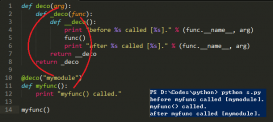本文实例讲述了Python实现大文件排序的方法。分享给大家供大家参考。具体实现方法如下:
|
1
2
3
4
5
6
7
8
9
10
11
12
13
14
15
16
17
18
19
20
21
22
23
24
25
26
27
28
29
30
31
32
33
34
35
36
37
38
39
40
41
42
43
44
45
46
47
48
49
50
51
52
53
54
55
56
57
58
59
60
61
62
63
64
65
66
67
68
69
70
71
72
73
74
75
76
77
78
79
80
81
82
83
84
85
86
87
88
89
90
91
92
93
94
95
96
97
98
99
100
101
102
103
104
105
106
107
108
109
110
111
112
113
114
115
116
117
118
119
120
121
122
123
124
125
126
127
128
129
130
131
132
133
134
135
136
137
138
139
140
141
142
143
144
145
146
147
148
149
150
151
152
153
154
155
156
157
158
159
160
161
162
163
164
165
166
167
168
169
170
171
172
173
174
175
176
177
178
179
180
181
182
183
184
185
186
187
188
189
190
191
192
193
194
195
196
197
198
199
200
201
202
203
204
205
206
207
208
209
210
211
212
213
214
215
216
217
218
219
220
221
222
223
|
import gzipimport osfrom multiprocessing import Process, Queue, Pipe, current_process, freeze_supportfrom datetime import datetimedef sort_worker(input,output): while True: lines = input.get().splitlines() element_set = {} for line in lines: if line.strip() == 'STOP': return try: element = line.split(' ')[0] if not element_set.get(element): element_set[element] = '' except: pass sorted_element = sorted(element_set) #print sorted_element output.put('\n'.join(sorted_element))def write_worker(input, pre): os.system('mkdir %s'%pre) i = 0 while True: content = input.get() if content.strip() == 'STOP': return write_sorted_bulk(content, '%s/%s'%(pre, i)) i += 1def write_sorted_bulk(content, filename): f = file(filename, 'w') f.write(content) f.close()def split_sort_file(filename, num_sort = 3, buf_size = 65536*64*4): t = datetime.now() pre, ext = os.path.splitext(filename) if ext == '.gz': file_file = gzip.open(filename, 'rb') else: file_file = open(filename) bulk_queue = Queue(10) sorted_queue = Queue(10) NUM_SORT = num_sort sort_worker_pool = [] for i in range(NUM_SORT): sort_worker_pool.append( Process(target=sort_worker, args=(bulk_queue, sorted_queue)) ) sort_worker_pool[i].start() NUM_WRITE = 1 write_worker_pool = [] for i in range(NUM_WRITE): write_worker_pool.append( Process(target=write_worker, args=(sorted_queue, pre)) ) write_worker_pool[i].start() buf = file_file.read(buf_size) sorted_count = 0 while len(buf): end_line = buf.rfind('\n') #print buf[:end_line+1] bulk_queue.put(buf[:end_line+1]) sorted_count += 1 if end_line != -1: buf = buf[end_line+1:] + file_file.read(buf_size) else: buf = file_file.read(buf_size) for i in range(NUM_SORT): bulk_queue.put('STOP') for i in range(NUM_SORT): sort_worker_pool[i].join() for i in range(NUM_WRITE): sorted_queue.put('STOP') for i in range(NUM_WRITE): write_worker_pool[i].join() print 'elasped ', datetime.now() - t return sorted_countfrom heapq import heappush, heappopfrom datetime import datetimefrom multiprocessing import Process, Queue, Pipe, current_process, freeze_supportimport osclass file_heap: def __init__(self, dir, idx = 0, count = 1): files = os.listdir(dir) self.heap = [] self.files = {} self.bulks = {} self.pre_element = None for i in range(len(files)): file = files[i] if hash(file) % count != idx: continue input = open(os.path.join(dir, file)) self.files[i] = input self.bulks[i] = '' heappush(self.heap, (self.get_next_element_buffered(i), i)) def get_next_element_buffered(self, i): if len(self.bulks[i]) < 256: if self.files[i] is not None: buf = self.files[i].read(65536) if buf: self.bulks[i] += buf else: self.files[i].close() self.files[i] = None end_line = self.bulks[i].find('\n') if end_line == -1: end_line = len(self.bulks[i]) element = self.bulks[i][:end_line] self.bulks[i] = self.bulks[i][end_line+1:] return element def poppush_uniq(self): while True: element = self.poppush() if element is None: return None if element != self.pre_element: self.pre_element = element return element def poppush(self): try: element, index = heappop(self.heap) except IndexError: return None new_element = self.get_next_element_buffered(index) if new_element: heappush(self.heap, (new_element, index)) return elementdef heappoppush(dir, queue, idx = 0, count = 1): heap = file_heap(dir, idx, count) while True: d = heap.poppush_uniq() queue.put(d) if d is None: returndef heappoppush2(dir, queue, count = 1): heap = [] procs = [] queues = [] pre_element = None for i in range(count): q = Queue(1024) q_buf = queue_buffer(q) queues.append(q_buf) p = Process(target=heappoppush, args=(dir, q_buf, i, count)) procs.append(p) p.start() queues = tuple(queues) for i in range(count): heappush(heap, (queues[i].get(), i)) while True: try: d, i= heappop(heap) except IndexError: queue.put(None) for p in procs: p.join() return else: if d is not None: heappush(heap,(queues[i].get(), i)) if d != pre_element: pre_element = d queue.put(d)def merge_file(dir): heap = file_heap( dir ) os.system('rm -f '+dir+'.merge') fmerge = open(dir+'.merge', 'a') element = heap.poppush_uniq() fmerge.write(element+'\n') while element is not None: element = heap.poppush_uniq() fmerge.write(element+'\n')class queue_buffer: def __init__(self, queue): self.q = queue self.rbuf = [] self.wbuf = [] def get(self): if len(self.rbuf) == 0: self.rbuf = self.q.get() r = self.rbuf[0] del self.rbuf[0] return r def put(self, d): self.wbuf.append(d) if d is None or len(self.wbuf) > 1024: self.q.put(self.wbuf) self.wbuf = []def diff_file(file_old, file_new, file_diff, buf = 268435456): print 'buffer size', buf from file_split import split_sort_file os.system('rm -rf '+ os.path.splitext(file_old)[0] ) os.system('rm -rf '+ os.path.splitext(file_new)[0] ) t = datetime.now() split_sort_file(file_old,5,buf) split_sort_file(file_new,5,buf) print 'split elasped ', datetime.now() - t os.system('cat %s/* | wc -l'%os.path.splitext(file_old)[0]) os.system('cat %s/* | wc -l'%os.path.splitext(file_new)[0]) os.system('rm -f '+file_diff) t = datetime.now() zdiff = open(file_diff, 'a') old_q = Queue(1024) new_q = Queue(1024) old_queue = queue_buffer(old_q) new_queue = queue_buffer(new_q) h1 = Process(target=heappoppush2, args=(os.path.splitext(file_old)[0], old_queue, 3)) h2 = Process(target=heappoppush2, args=(os.path.splitext(file_new)[0], new_queue, 3)) h1.start(), h2.start() old = old_queue.get() new = new_queue.get() old_count, new_count = 0, 0 while old is not None or new is not None: if old > new or old is None: zdiff.write('< '+new+'\n') new = new_queue.get() new_count +=1 elif old < new or new is None: zdiff.write('> '+old+'\n') old = old_queue.get() old_count +=1 else: old = old_queue.get() new = new_queue.get() print 'new_count:', new_count print 'old_count:', old_count print 'diff elasped ', datetime.now() - t h1.join(), h2.join() |
希望本文所述对大家的Python程序设计有所帮助。












